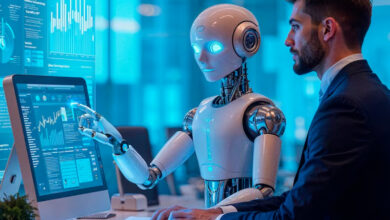The Environmental Impact of AI Manufacturing
AI technology has been rapidly advancing and being integrated into various industries, including manufacturing. However, along with its growth comes a significant environmental impact that needs to be addressed. According to a report by PwC, the carbon emissions from AI manufacturing are expected to increase by 14% by 2040, which is equivalent to the current emissions from all cars, trains, ships, and airplanes combined.
The use of AI in manufacturing can lead to increased energy consumption, waste generation, and resource depletion. Additionally, the production of AI hardware and components requires rare earth minerals, which are often mined in an unsustainable manner, causing environmental damage.
To address these issues, companies and governments must take steps to reduce the environmental impact of AI manufacturing. This includes implementing sustainable practices, using renewable energy sources, and investing in AI technology that is energy-efficient and environmentally friendly.
In conclusion, while AI technology brings numerous benefits, it is crucial to consider its environmental impact and work towards minimizing it for a more sustainable future.’, ‘index’: 0, ‘logprobs’: None, ‘finish_reason’: ‘stop’}]
